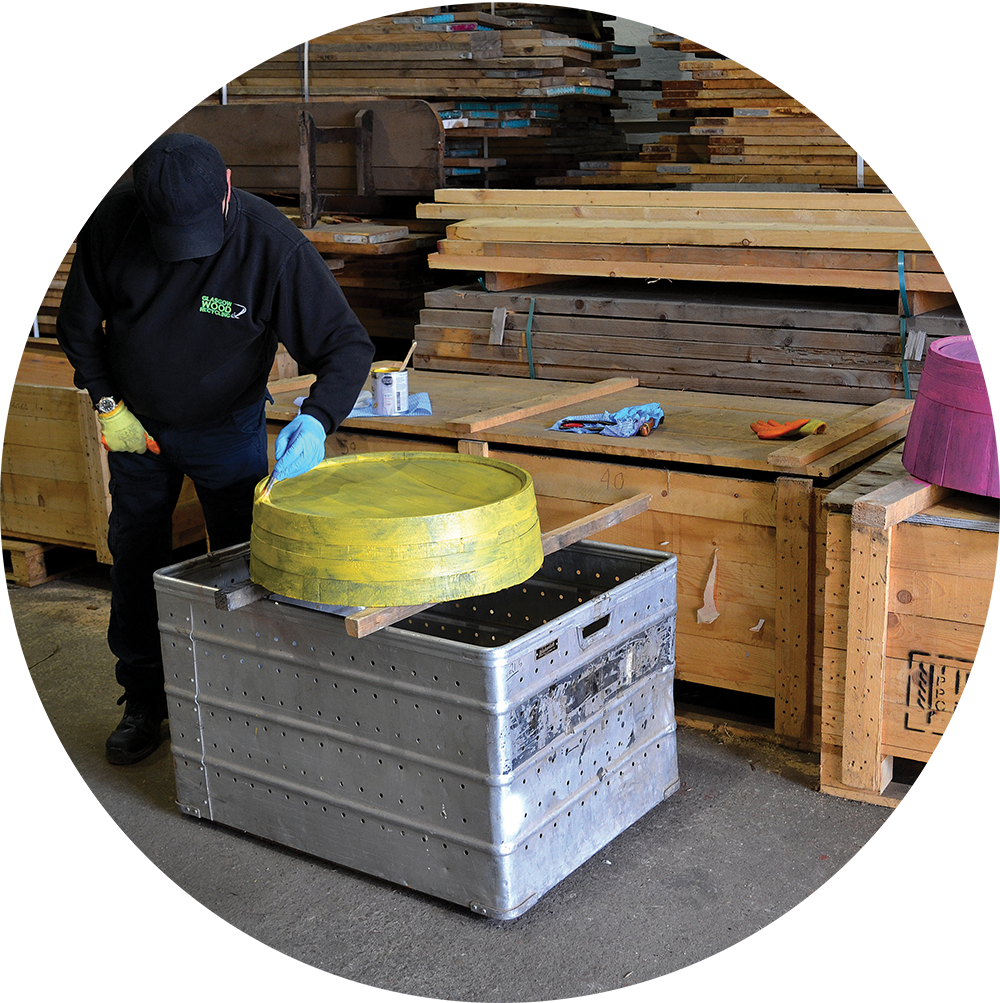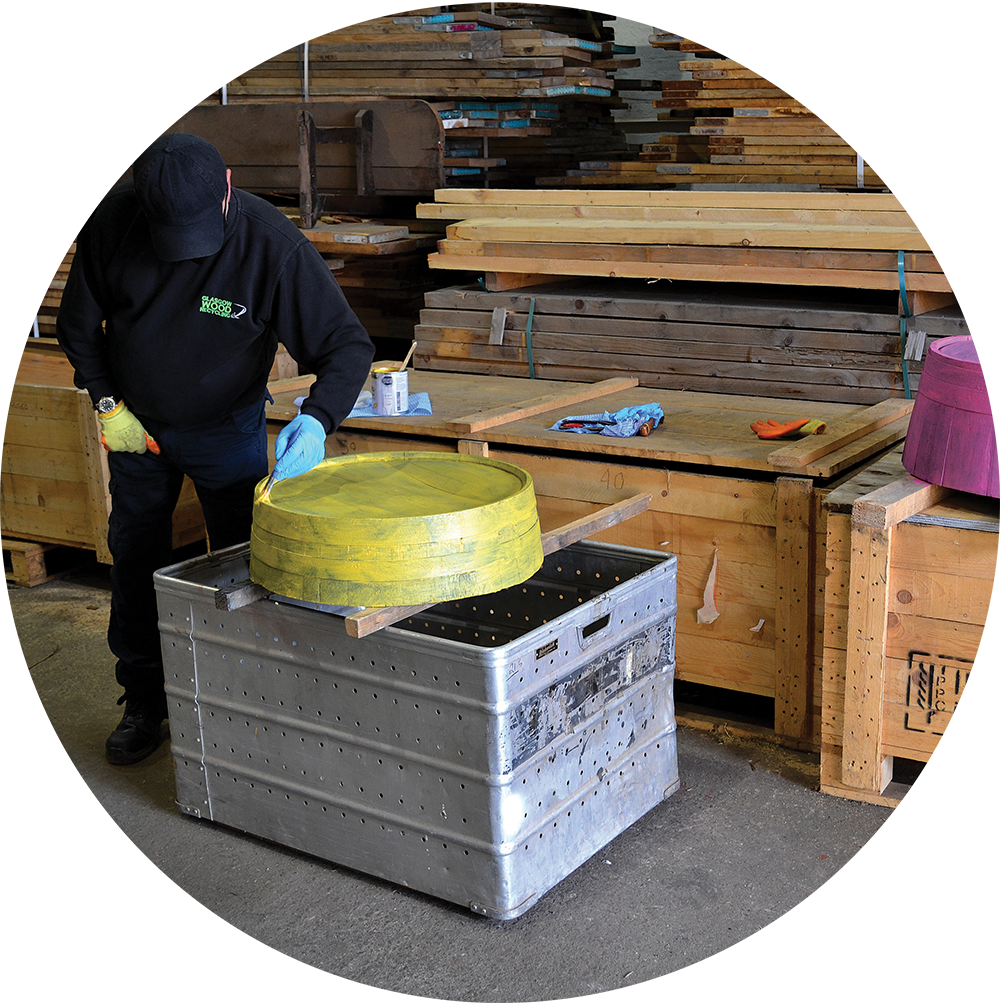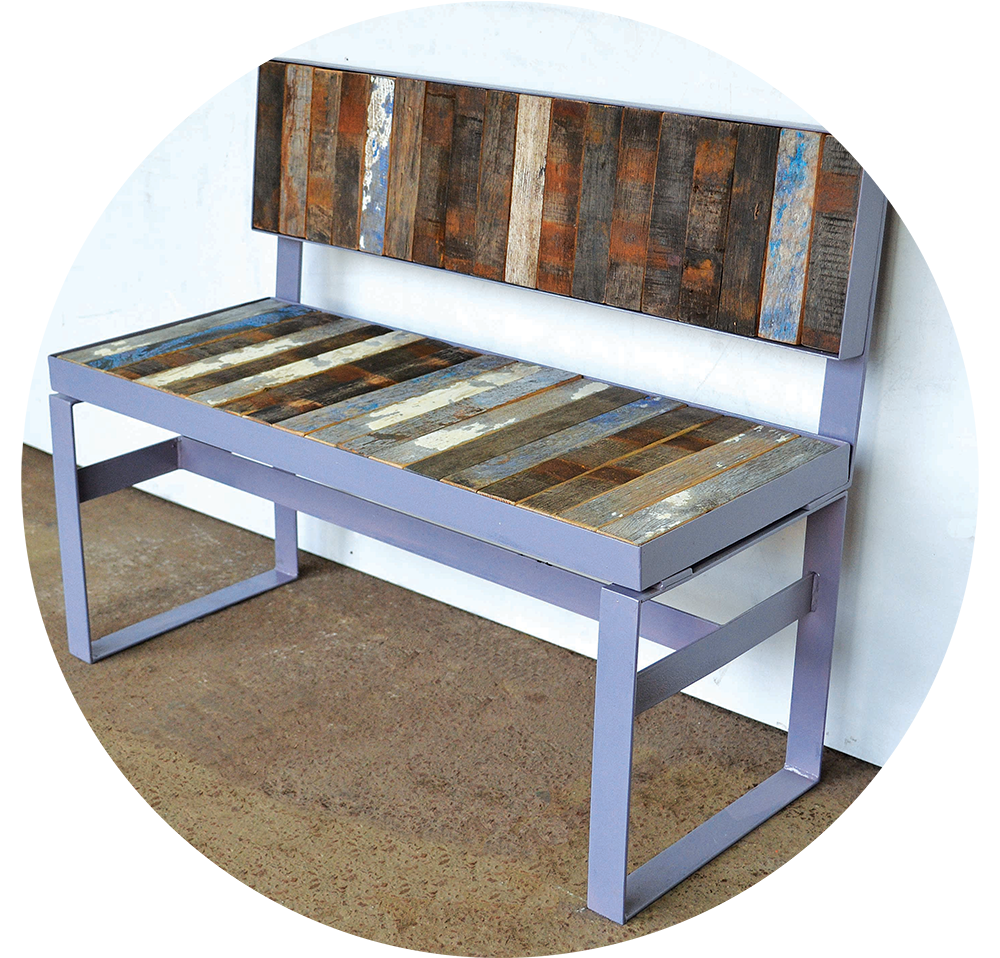
GLASGOW WOOD RECYCLING
Creating new profits from waste wood
Wood is all around us, it’s an incredibly resilient natural resource that has countless uses, from packaging and storage to construction and manufacturing. But what happens to these materials when they have served their initial purpose?

Glasgow Wood Recycling has the answer
A social enterprise and charity with circular economy at its heart, Glasgow Wood Recycling was founded by Peter Lavelle in 2006. A pioneering Scottish business with a passion for the environment, the company is focused on tackling unemployment and social exclusion by up-skilling volunteers and trainees in wood-work skills. For 15 years the team has been committed to finding creative and socially inclusive ways to reuse wood.
When they discovered that about 250,000 disused whisky casks are disposed of in Scotland each year, this sparked an idea - was there an opportunity to reuse the wood from these oak casks to give it new life?
“Whisky barrels are so often overlooked, with appreciation focused on their contents”
“We wanted to do something sophisticated with this beautiful quality wood that was left over and often forgotten about.”
What support was available?
An in-depth analysis supported by Zero Waste Scotland revealed three new business opportunities from the waste casks. The analysis looked at business cases and carbon savings for manufacturing fencing and screens, wall cladding and outdoor play equipment. A possible profit margin of over 40% was identified for the build of outdoor play equipment, equating to a potential new revenue stream of over £1 million per year. All the business cases had potential to offer Glasgow Wood Recycling new revenue and help the environment by preventing wood from going to waste.
The proposal to manufacture wall cladding made from discarded whisky casks played into Glasgow Wood Recycling’s existing skills and customer base, and the carbon saving was identified at 27.79tCO₂e per year assuming maximum production capacity.
"Thinking circular is key to our business. It has so many benefits - it's something all companies should be doing!”
With help from Zero Waste Scotland, RE-CASK was born.
The Circular Economy Business Support service was able to further assist the business in the launch of RE-CASK through the appointment of an intern, which was a new offering from Zero Waste Scotland that helps to promote circular jobs and skills in the Scottish economy. Graphic design graduate Lucy Watkins was initially recruited for three-months, but her work proved to be so valuable that the placement was extended.
With a passion for recycling and reuse, Lucy jumped straight in with focus and determination and really embraced the project. She says “Using reclaimed wood from whisky barrels in these new ways is very different and totally unlike anything else on the market. This is true innovation.”
Throughout the placement Lucy developed many new skills, she continues “The internship has allowed me to utilise my design skills to build a sub-brand for RE-CASK, whilst also learning a great ideal about marketing and how to apply my design effectively. It has broadened my skillset for future employment and was extremely beneficial in my professional development. I’m really proud of everything I’ve achieved!”
The experience not only helped Lucy; it was also incredibly valuable for the business in moving RE-CASK forward. Peter adds. “Lucy’s work not only generated extra income and boosted awareness of Glasgow Wood Recycling, it also improved morale among the team. She really grasped the needs of the business and made such a positive impact, it really was amazing to get a fresh perspective.

“I would recommend other businesses to adopt more circular approaches, it creates new opportunities and has so many positives.”
